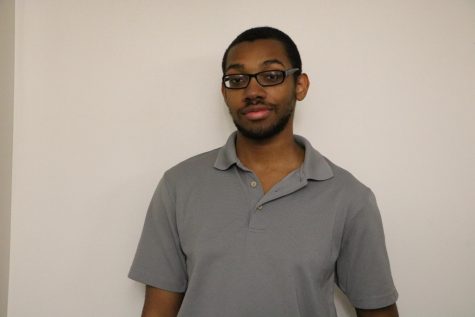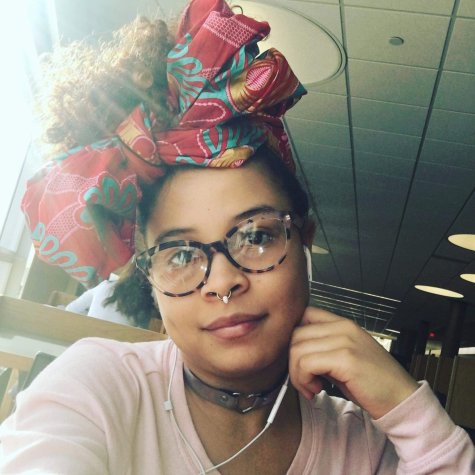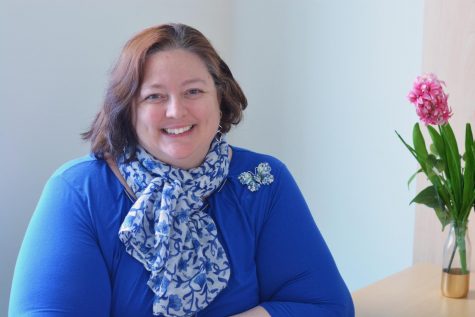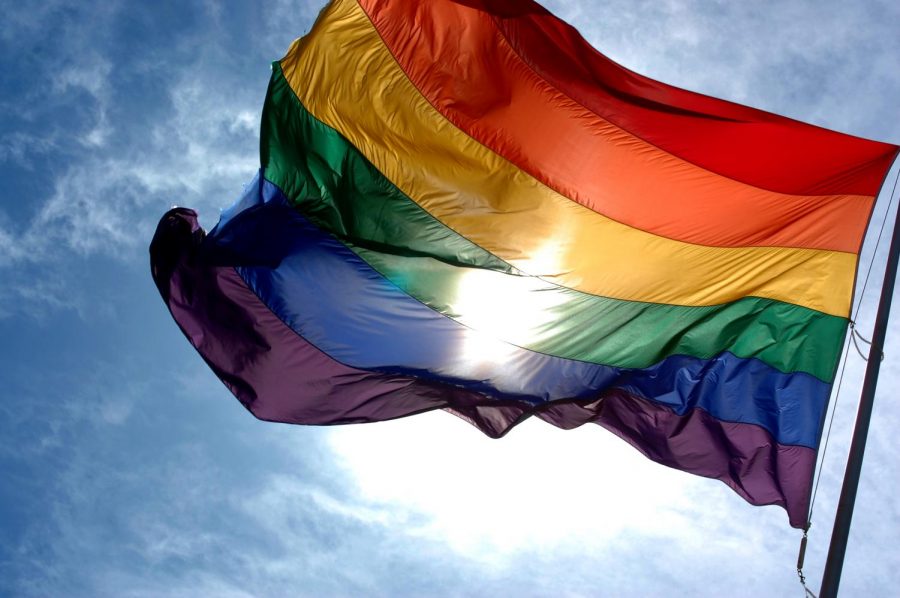Have we become too dependent on superficial sexual labels?
LGBTQ…HIJKLMNOP
With questions surrounding where the gay rights movement desires to go and how it wants to define itself, have the divisions in opinion hindered solidarity and progress?
March 30, 2019
Gray asexual, demi-sexual, agender, bigender, trigender, cisgender, otherkin, heteroromantic, homoromantic, akoisexual, panalterous, polyalterous, quoiromantic, quoisexual.
At what point in the alphabet soup of identities can we just be human?
Kevin Ashley, a member of the College of DuPage Pride Alliance, believes the unnecessary complexity hinders the gay community’s desire for social equality.
“We are so close to finding acceptance, but the gay community is shooting itself in the foot,” said Ashley. “When it comes to sexuality, your true identity should be more than just a few characteristics. We don’t need to go out of our way to define ourselves and cram us into new boxes when the old ones no longer fit. The moment you give something a label you try to make it special, and the general public rolls their eyes.”

COD student Kevin Ashley
There has been a fragmentation amongst the gay community; a dangerous sectarian marginalization. In an effort to promote diversity and celebrate uniqueness, a vast array of new gender identities has been created. Have these new labels provided a greater sense of belonging, or have they proved detrimental to inclusivity? Does defining your identity help you better understand yourself, or does it pressure you to behave and think a certain way?
Does depending on superficial labels prevent the individual from exploring the complexities and nuances of their true self-worth? If the gay-rights movement is premised upon acceptance and ending painful marginalization, have the new identities furthered personal isolation?
Ashley understands the desire to belong to a comfortable niche and find acceptance. However, he feels the use of gratuitous identities misses the purpose of helping the individual.
“Often people misuse labels to make them appear unique when, in actuality, they need to look inside themselves and identify what truly make them special,” said Ashley. “People need to be more than just their sexuality. Relying on labels is a cop-out to avoid looking within and conducting proper introspection on your personality and existence as a human.”
Pride Alliance member Chloe Edwards believes gender labels were crucial in helping them better appreciate themself during a very difficult time in their life.
“(Gender-neutral) pronouns meant a lot to me because for most of my life I was very confused about my gender,” said Edwards. “I didn’t fit under the traditional labels and was struggling to find where I fit. Once I began to understand what non-binary genders are, what gender-neutral pronouns are, I began to connect with the term and slowly correct my destructive feelings of gender dysphoria.”

COD student Chloe Edwards
Edwards believes labels are a stepping-stone to appreciating the full spectrum of identity. However, they said there are complexities of character that shouldn’t be constricted.
“The labels may help me find myself, but they are by no means who I am,” said Edwards. “The dysphoria label helps you realize you are trans, but after a certain point you no longer need the label. You can’t always rely on a diagnosis or label as a means of identifying and presenting who you are. You shouldn’t feel forced to adjust your identity when it may not be necessary.”
Ashley said people feel compelled to adjust when they perceive labels as aspirational. This inspires conformity and suppresses the real individual. He said the label gray sexuality was invented to describe people who feel sexual attraction sometimes, but not all the time.
“How does this not just describe a regular person?” asked Ashley. “Labeling is a product of social media’s instant gratification and how our culture dictates everything must fit perfectly into a box. We’ve been taught things need to be labeled in order to be properly understood.”
Ashley fears this conditioning has led people of the community to invalidate each other because they don’t perfectly fit each label. He believes broader terms can provide comfort without instigating alienation.
At a time when conservative reactionaries are pushing against the gay-rights movement, the community has lost solidarity. The divisions amongst the community have created internal tensions and inspired further isolation.
“As a community, we have segregated ourselves,” said Ashley. “To help bring the homogeny back and end discord, we need to make official labels that aren’t too restrictive. Once people constrict themselves to overcomplicated labels, the overall message of the community is lost.
“It’s a problem if getting to know you is like making my way through a jungle, hacking through all your different personalities and labels just to get to the real you,” he continued. “Sexuality is already complicated enough. Needless complications can lead to indifference and resentment towards the individual and the entire community.”
Ashley said respect and acceptance are the priority, but he takes issue when someone claims there are 80 genders and then gets upset when other people become confused. Too often he witnesses people using labels as part of their armory and acting as gatekeepers to defend their honor. He fears this vanity and self-indulgence has come at expense of solidarity and greater understanding.
The term MOGAI stands for “Marginalized Orientations, Gender Identities, And Intersex,” and serves as an umbrella term for the numerous micro-identities people so stridently defend.
Edwards believes the over-abundance of micro-identities have become one of the reasons the public often fails to take the community seriously.
“There are people who experience genuine confusion, so exploring these micro-labels can help,” said Edwards. “However, people often take it too far in terms of being a truly marginalized group. People often label themselves because it is popular and makes them seem special. In reality, being marginalized is dangerous and tragic for the individual.”
They believe some terms are valid and should be respected, but fears people’s over-reliance on unnecessary micro-labels has manifested in a disingenuous fashion.
Edwards explained people inventing demi-sexuality to define the desire to get to know someone before becoming sexually intimate.
“It’s basically a term that captures the entire population,” said Edwards. “People take advantage of its uniqueness as a label. If I were to meet someone who identified as an obscure gender, I would still accept them, but I would be judging them as someone who makes the gay community look like a joke.”
They believe we should continue celebrating diversity, however, most trendy terms just describe aesthetic preferences rather than actual sexuality. Edwards said between people claiming 76 genders and conservatives insisting there are only two, there is a number less ridiculous and more reasonable.
Edwards believes the community needs to return to authenticity. They urge people to do what makes them feel comfortable, but act within reason. They think tensions over micro-labels fracture the cohesion of the movement. Edwards said this turns people in the gay community against each other when they should be uniting for equality.
“If you don’t have unity, the community is going to fall apart,” said Edwards. “We need to hope for positive change, but the change will not happen unless we as a community make an effort together. We cannot let everything we’ve worked so hard to create over the past 50 years be destroyed by pointless divisions.”

COD Sociology Professor Bonniejean Alford
Honoring Your True Self
COD Sociology professor Bonniejean Alford calls herself the “Identity Guru.” She recently launched, “Life’s A Blank,” a podcast celebrating people living their truth and not letting anyone steal their thunder.
Alford believes the complexities of labels in the LGBTQ community can appear daunting.
“Labels are only as good as they are fulfilling,” said Alford. “Society often offers labels as a way to group people arbitrarily. People feel they have to belong to one another, rather than stand firm in their own beautiful self.”
She believes most people aspire to please others, often at the expense of themselves. This leads people to conform to others’ constructed labels.
“We walk through life putting other people in boxes preventing people from living as their whole selves,” said Alford. “(It’s) a world that wants everyone to conform to one reality – a reality everyone doesn’t fit.
“It takes courage to know exactly who you are and what you truly want out of life. Silencing the world and listening from within can be an intimidating endeavor, especially when doing so may not get you the pay or resources you deserve.”
Alford believes people often accept societally imposed labels as an attempt to fit in rather than celebrate their individuality.
“From a sociological perspective, people tend to be more strongly attached to labels they proclaim for themselves than those imposed on them,” said Alford. The label may be the center of their existence, (but) if a person is feeling trapped within the label, as though something is missing, it might be time to step away. People can get obsessed with having their lives center around some label for various reasons, from personal, romantic, to political or social.
She believes labels can be beneficial if they connect you to a community in a meaningful and a true way. This strengthens a person’s core identity. However, she warned clinging to a label may foster an artificial feeling of belonging.
“What good is belonging when a person feels incomplete?” asked Alford. “A label is just a label. It means very little unless you give it power. When a person clings to a label because they think they need (it) for survival, then it isn’t honoring (their) true self.”


















